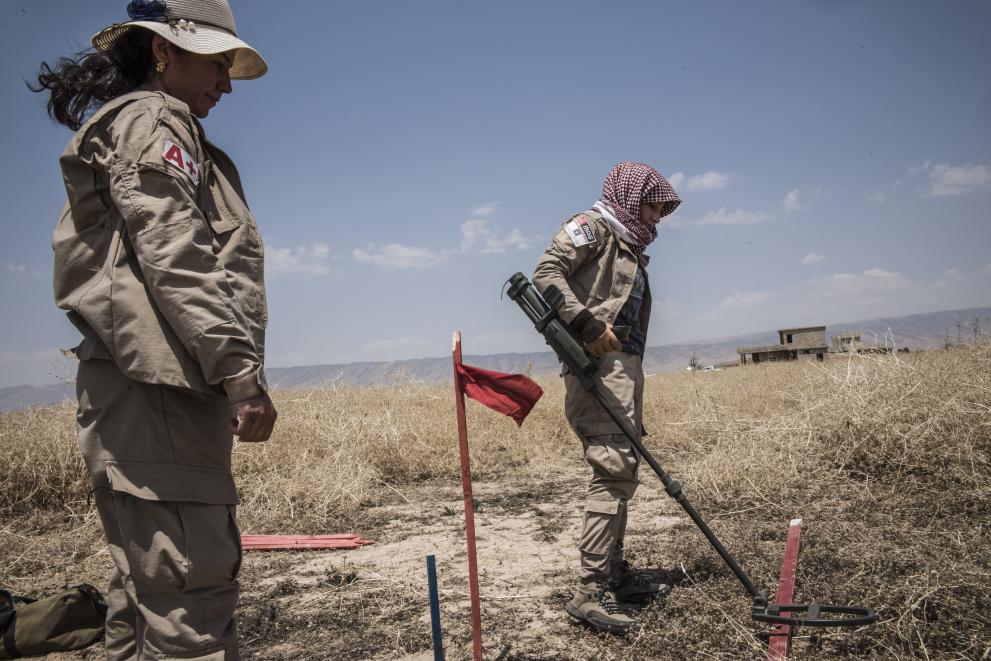
"I sure know nothing about the future… I only hope for it to be better than now and the past."
Henna, a 28-year-old Yazidi-Kurdish woman, is the head of a mine and explosive action team, Team 108, in charge of clearing unexploded devices left behind by Daesh in the area surrounding Sinjar, north of Mosul, Iraq.
“Our job is not an easy one,” she explains. “But we try to put up with everything. We work outdoors, there is wind, rain, sun, and heat. The only thing about this job that keeps us going is the humanitarian side.”
Unexploded devices and booby traps are amongst the most threatening and dangerous leftovers of Daesh in this region. Team 108’s job is of fundamental importance: people’s lives are at risk every day as undetonated mines are not easy to identify for non-experts. “Our people are still living in fear, even after they [Daesh] have left,” she explains.
When referring to Daesh, Henna says: “They definitely didn’t spare a thing when they attacked us. Nothing! Anything from rape, demolition, damaging the economy, murder, destruction, robbery, you name it! […] Even now that they are gone, we can see their traces.”
Some of the northern areas of Sinjar have been cleared, but given the scale of contamination in the region, return to normalcy will take time. People do not feel safe yet. Houses are still in ruins and unexploded devices are spread everywhere, in people’s farms, in landfills, and in rubles.
When asked about fear that Daesh could return, Henna explains that “since their invasion, there is always the anxiety. Their attacks left a traumatic fear in us.” Local communities, and the Yazidis in particular, have gone through an unspeakable ordeal during Daesh’s occupation, but Henna says: “our people are now going strong. They are more courageous. Especially women who accept to do such a risky, difficult job, all after the agony they went through.”
Thanks to the Mining Advisory Group (MAG) and the financial support of the European Union through the EU Trust Fund, Henna and her team of experts are rebuilding this region’s future. By clearing more fields every day, people will be able to return to their homes and activities and finally resume their lives.
“Our job is extremely dangerous but we cope with it. […] I sure know nothing about the future… I only hope for it to be better than now and the past.”
